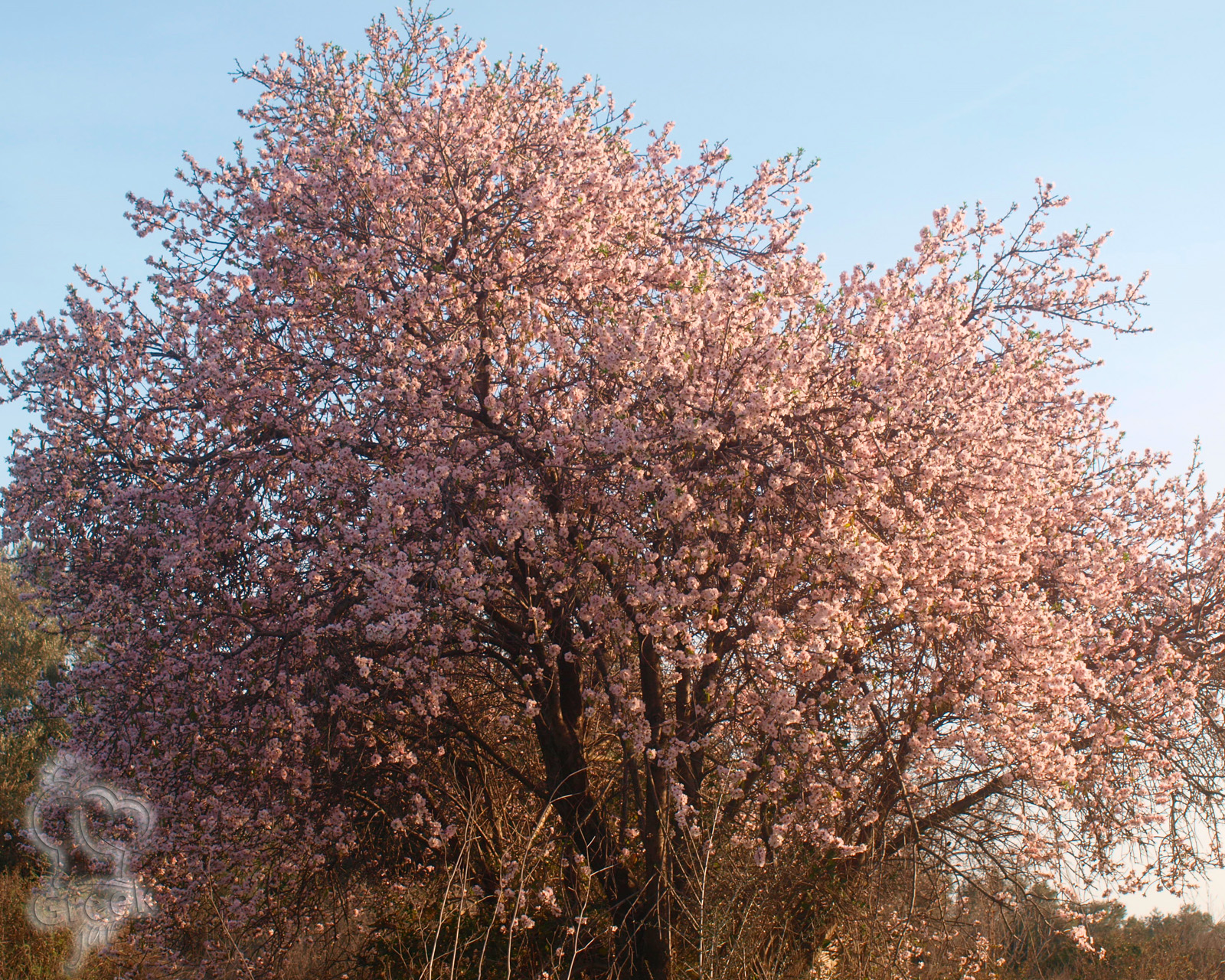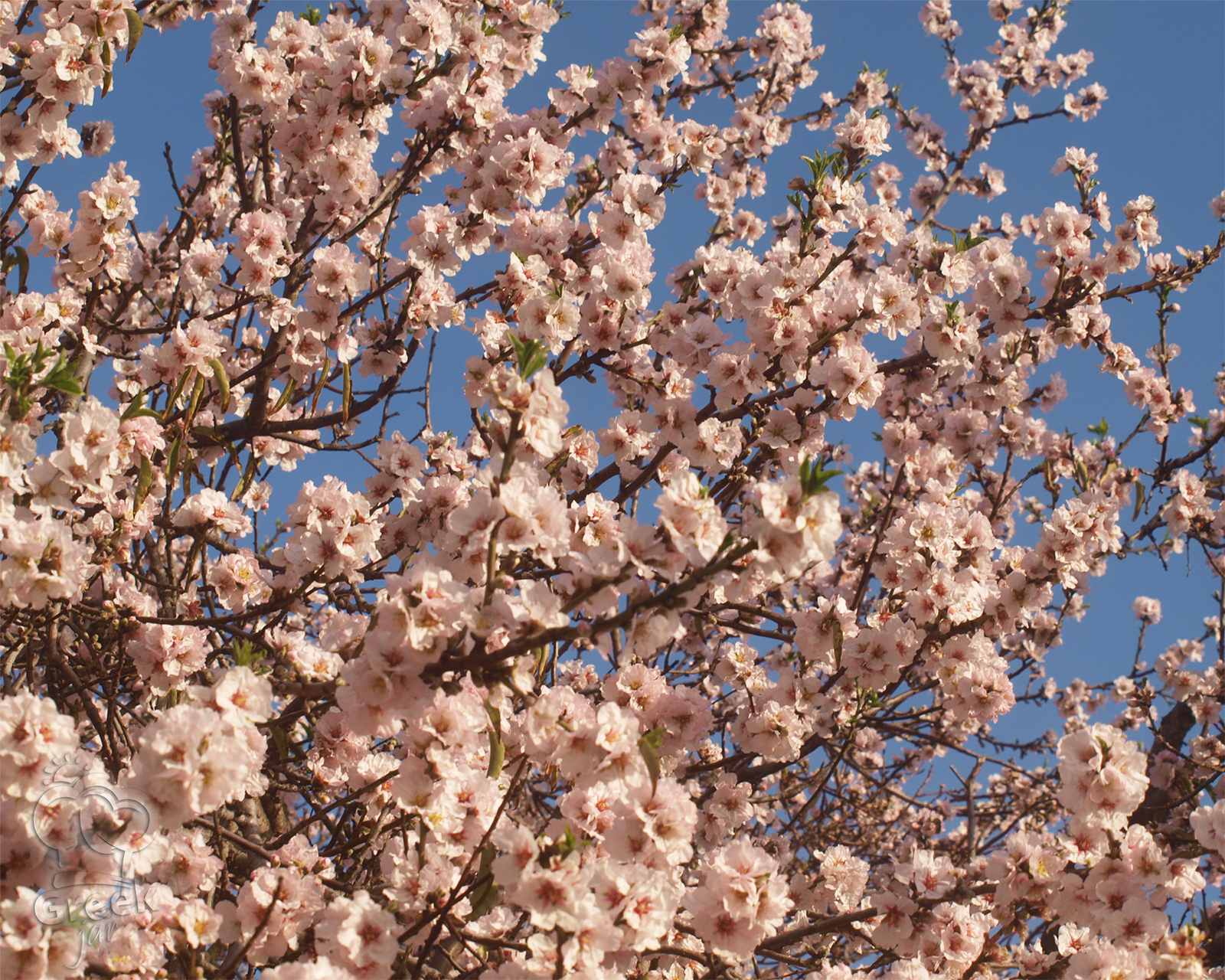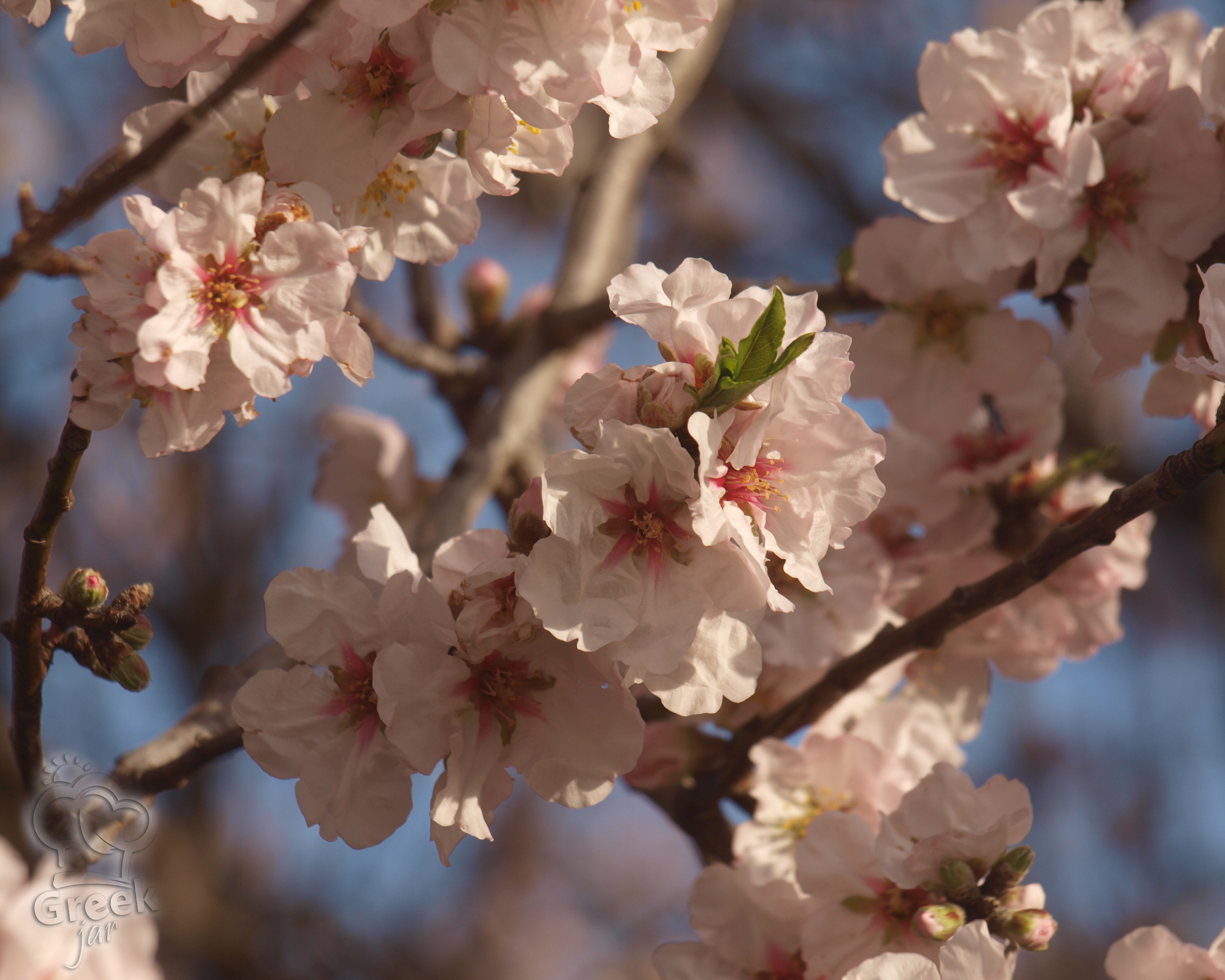Almond tree, a tree that blooms in winter but signals the rebirth of nature and the arrival of spring. A tree that symbolizes hope, luck, and longevity, and with each white or pink blossom, it adds a note of optimism. A tree that never ceases to captivate us and dresses in its 'best' for all of us who always stand before a blossoming almond tree.
The almond tree is deciduous, and its blossoms usually start in the first month of the year, but weather conditions, the cold period, and various varieties determine when. Its fruit, our beloved almond, is not only delicious but also beneficial. It contains a high percentage of protein, iron, calcium, phosphorus, and B vitamins. Widely used in pastry and aromatherapy, almond oil, known to all of us, has valuable therapeutic properties.

However, the contribution of the almond tree doesn't stop here. Its blossoming in winter provides bees with the nectar and pollen they need during a period when the queen prepares for the new year's birth, and food sources are scarce. So, these wonderful microscopic creatures, whose presence ensures our survival on this planet, find the necessary food and, at the same time, undertake the vital task of pollination, crucial for the almond tree, as the high rate of fruit set is owed to the bees.

The almond tree is a favorite tree of poets but also of Greek mythology. One of the many myths, and one of the many variations, tells of the love between two young people, the daughter of a Thracian king, Phyllis, and the son of Theseus, Demophon, who met the princess on his return from Troy. They married, but Demophon had to return to Athens to help his father in the struggle against his political opponents. Another version states that he longed for his homeland. He promised her that he would return quickly, and she patiently waited for him. However, fate had other plans... A storm swept Demophon to Cyprus. Years passed, and Princess Phyllis withered day by day. Eventually, her heart couldn't take it. The gods of Olympus, moved by her story, transformed her into an almond tree. When Demophon finally returned to Thrace to find her, he saw a withered tree. Desperate, regretful for leaving, and with tears in his eyes, he embraced the tree, and suddenly, the almond tree blossomed in the heart of winter, thus winning immortality.

Is it possible that each time an almond tree blossoms, it subtly attempts to draw our attention to the extraordinary and 'magical' workings of nature, suggesting that maybe we ought to foster a deeper respect and love for it? Could it be so?








